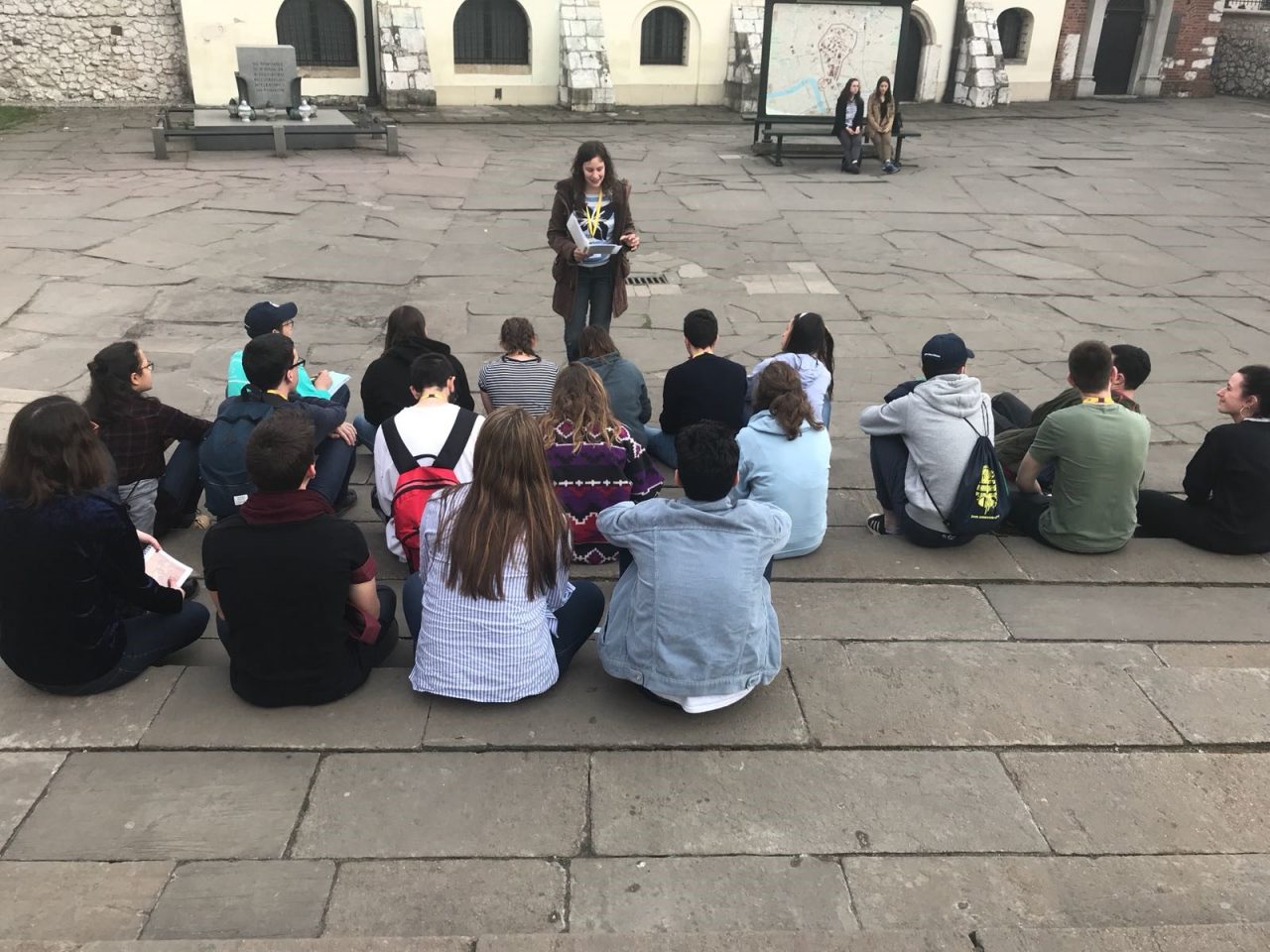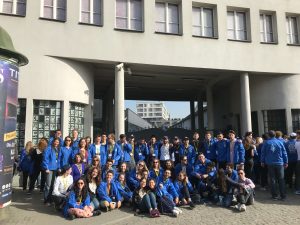HMDT Blog: The Holocaust – Educating in Poland, Dr Rachel Century
In this blog, HMD Development Manager, Dr Rachel Century, reflects on her recent visit to Poland as an educator on March of the Living UK. With recent changes to Polish law, Rachel here discusses the impact this had on her work as a Holocaust educator and the wider implications for those trying to understand exactly what happened in Poland during the Holocaust.

A recent law passed in Poland, amid great controversy, was hovering over my shoulder like a bad conscience as I took off from London with 270 other people headed for Warsaw to begin a five-day journey as part of the UK delegation for March of the Living. This journey would see us visit sites of relevance and interest to pre and post war Jewish life in Poland, and sites of the Holocaust: ghettoes, deportation points, concentration camps, and extermination camps. After these five, intense, focussed and stimulating days, the journey would culminate in a march, alongside around 12,000 people from all over the world, known as March of the Living – the very antithesis of the Death Marches that so many people were forced on by the Nazis, out of the camps, out of the reach of the approaching allies, towards certain death.
I had taken part in March of the Living before, as a participant on the UK delegation in 2017, but this year was different. The new law. How it would impact on the journey we were about to take? And, significantly, this year, I was not a participant, but an educator, leading a group of 20 students around these sites.
Legislation passed by the Polish government at the end of January 2018 makes it illegal to suggest that Poland and/or Polish nationals bear any responsibility for Nazi atrocities committed on its soil, punishable by up to three years in prison. Much of the UK press coverage concerning the law focused on the term ‘Polish death camps’. This term is factually inaccurate, as whilst the camps were on Polish soil they were planned and run by Nazis. Additionally, the term is also deeply offensive, given that Poles were, after Jews, numerically the greatest victims of the German Nazi camps. The law is partly about making the terminology clear but has been criticised for making it difficult to discuss the extent of involvement of Poles and Poland.
In the office at Holocaust Memorial Day Trust, I had a few informal chats with my colleagues about whether the law would change what I would say or how I would say it. Would the very existence of the law cause me to self-censor to ensure I avoided any repercussions? Not at all, I said, I would ensure that my group knew about this problematical phrase, and that they understood the complexities of the Holocaust – that it was carried out by (some) Germans on Polish soil (and other Nazi-occupied countries).
Except. How could I present the full picture of what happened in Markowa, which now houses Poland’s first museum dedicated to ‘Righteous Among the Nations’, if I couldn’t talk about the role that Polish nationals played, both good and bad? How whilst some Poles hid Jews and were murdered for doing so, other Poles murdered the Jews they had been hiding when the threat of death became too much. I don’t share this story to pass judgements, or criticise how people chose to act in a time when life was turned upside down. Rather, this story demonstrates the complexities of the Holocaust.
As I stood with my group at the site of Belzec, a former German extermination camp, where an estimated 430,000-500,000 Jews were murdered and today there is nothing except memorials, the question arose: how can I, or anyone, attempt to convey the complex nature of the Holocaust, if the law restricts me from discussing the different ways people were involved?
The President of the Republic of Poland, Andrzej Duda, spoke at the main ceremony at the end of the March this year. Emphasising that Auschwitz was where Nazi Germans committed the greatest crime of genocide in history, he noted that: ‘We Poles consider it our duty to carry testimony about the Holocaust to the world, and we did this while the Holocaust was still in progress’.
Indeed, whilst he is not wrong (see the life story of Witold Pilecki as one example), I can’t help but wonder about the other side of that spectrum, when Poles informed where Jews were hiding, for example. President Duda presented just one of the many ways Poles acted during the Holocaust, but did not paint the full and more complicated picture.
March of the Living international issued a statement prior to the march declaring their resolution to continue the March, despite the new legislation, which they oppose. As the organisation says, we all stand as guardians of Holocaust memory; we have to ensure that the horrors of the Holocaust will not be forgotten or repeated; and we must honour our shared human values.
The group of students I was educating were engaged, interested and eager. They had many questions about all aspects of the Holocaust but we kept coming back to a couple of key themes: how much did people at the time know about the Holocaust; and denial of the Holocaust today. During the visit we discussed how people deny the Holocaust in the face of all the evidence, and how each of us on the March of the Living UK journey felt a responsibility to share what we had learnt. We also considered the importance of not polarising people as either perpetrators or victims, but rather looking at the full spectrum of different people and their involvement – people who faced ‘choiceless choices’ and were pulled into the deepest despairs of humanity. Pulled there by the Nazis.
Fortunate to hear from several survivors during the five days, we each felt duty bound by the late survivor Elie Wiesel’s words: ‘When you listen to a witness, you become a witness.’
Dr Rachel Century is HMD Development Manager at Holocaust Memorial Day Trust.
For further information about March of the Living please visit: https://www.marchoftheliving.org.uk
The HMDT blog highlights topics relevant to our work in Holocaust and genocide education and commemoration. We hear from a variety of guest contributors who provide a range of personal perspectives on issues relevant to them, including those who have experienced state-sponsored persecution and genocide. The views expressed are those of the author and do not necessarily represent the views of HMDT.